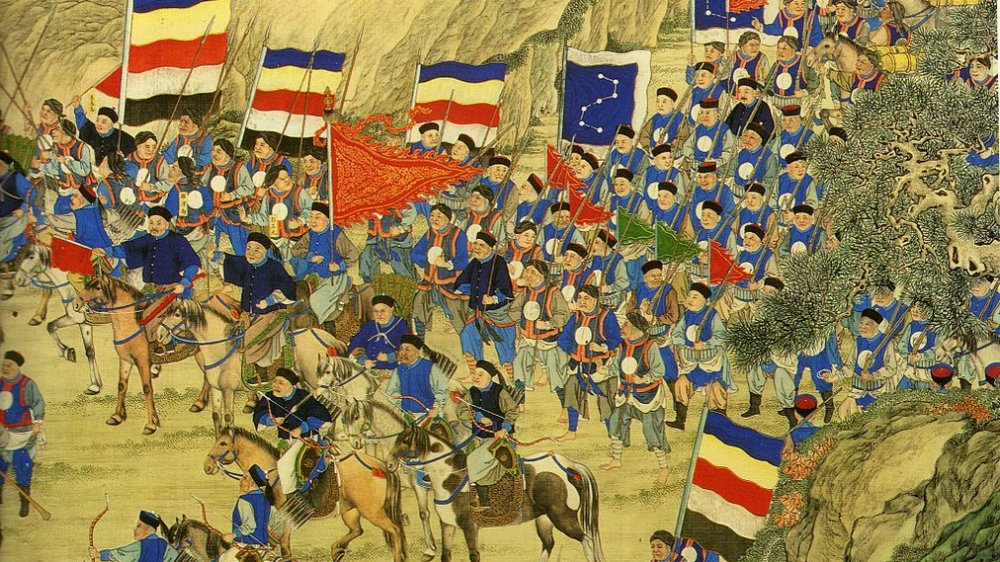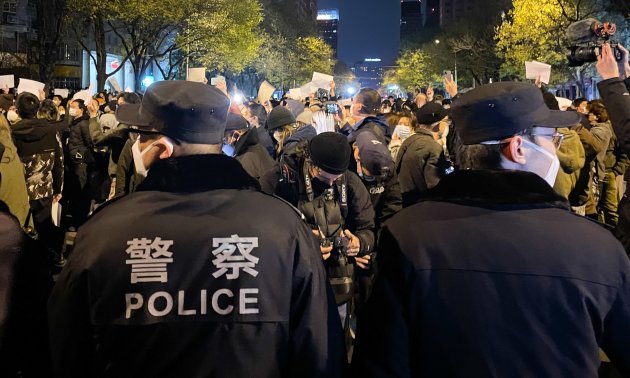 China looking to learn lessons from Yevgeny Prigozhin’s aborted Russian rebellion
China looking to learn lessons from Yevgeny Prigozhin’s aborted Russian rebellion
Beijing is watching closely for any spillover after the Wagner Group chief called off his advance to Moscow in an apparent deal
China’s response has been cautious so far with Foreign Minister Qin Gang meeting Russia’s deputy foreign minister Andrey Rudenko on Sunday
An armed rebellion in Russia may have been aborted for now but China is watching closely for potential spillover effects and lessons on national security, observers said.
Wagner mercenary leader Yevgeny Prigozhin called off his advance on Saturday and reportedly reached a deal with the Kremlin to go into exile in Belarus. Beijing’s response to the events appeared cautious, with no official statement as of Sunday or safety reminders from the Chinese embassy in Moscow for its citizens.
Beijing’s response to the events appeared cautious, with no official statement as of Sunday or safety reminders from the Chinese embassy in Moscow for its citizens.
However, the developments were reported in Chinese state media, including state news agency Xinhua, citing Russian authorities and Chinese journalists on the ground.
The incident was also widely discussed on Chinese social media platforms, becoming one of the most-searched topics in Weibo, the Chinese version of Twitter. Russian deputy foreign minister Andrey Rudenko travelled to Beijing to meet China’s foreign minister Qin Gang on Sunday. The Chinese foreign ministry said only that they had discussed “Sino-Russian relations and international and regional issues that are of common concern”.
Russian deputy foreign minister Andrey Rudenko travelled to Beijing to meet China’s foreign minister Qin Gang on Sunday. The Chinese foreign ministry said only that they had discussed “Sino-Russian relations and international and regional issues that are of common concern”.
Feng Yujun, director of the Centre for Russian and Central Asian Studies from Fudan University, said: “One incident alone will not have a direct impact on the China-Russia relationship or on China itself.
“But the overall international situation, including the future direction of the Russia-Ukraine war, the uncertainty of Russia’s future development, the geopolitical challenge, and the significant shifts in China’s surrounding environment, will have a profound historical impact on China.”
He said the situation in Russia may have eased but the deep political divisions within the country remained unresolved.
“It is important to recognise that this event marks only the initial stages, and there is potential for further turmoil ahead,” Feng said.
Liu Weidong, from the American Institute of the Chinese Academy of Social Sciences, said China considered Russia as a key partner and its domestic stability was very important to Beijing, particularly as ties with the West deteriorated.
Analysts said Beijing could also be watching for political and military lessons, especially in relation to Taiwan.
“A failure on the front lines of a major military action, such as one to unify Taiwan with the mainland, could help unofficial militant groups spring up – a risk Chinese leaders have to prepare for,” said a mainland researcher who requested anonymity because of the sensitivity of the topic.
“Russia has always been an example for China to prepare for national security risks.”
He said the rebellion was a cautionary tale for how Beijing should manage its ties with the military.
The leadership’s grip on the armed forces has tightened since President Xi Jinping assumed power and the People’s Liberation Army has been told to obey the Communist Party.
In May, Xi said in a National Security Commission meeting that China needed to prepare for “worst-case and most extreme scenarios”. The meeting also approved a national system to monitor and warn about security risks.
“While no mercenaries are in mainland China now, and the party has unified leadership over the military, an ‘extreme scenario’ leaders have to consider is whether the frontline failures of a large-scale military action might lead to a splitting of militant power,” the researcher said.
Li Nan, a visiting senior research fellow at the National University of Singapore’s East Asian Institute, said the events could offer lessons to Beijing about the relationship between the military and the civil sector.
The Russian government became dependent on the Wagner Group to invade Ukraine but the mercenary group had long complained about the lack of support for its fighters, he said.
“The war was ordered by Putin – he’s the political leadership – and that almost turned out to be a failure, or a stalemate. So it’s a civilian failure,” Li said.
But China tends to look to its own history of major armed rebellions and warlordism for such lessons, with many of the discussions on social media looking for historical precedents.
Hu Xijin, former editor-in-chief of nationalist tabloid Global Times, wrote on Chinese social media: “This uprising is poised to create reverberations and repercussions within the political landscape of Russia, casting a shadow over the stability of Russian military forces on the Ukrainian front line.”
Sunday, June 25, 2023
CCP reeling In Fear Over The Wagner Affair
Subscribe to:
Post Comments (Atom)




No comments:
Post a Comment
Note: Only a member of this blog may post a comment.